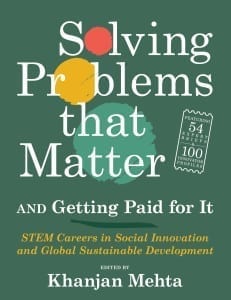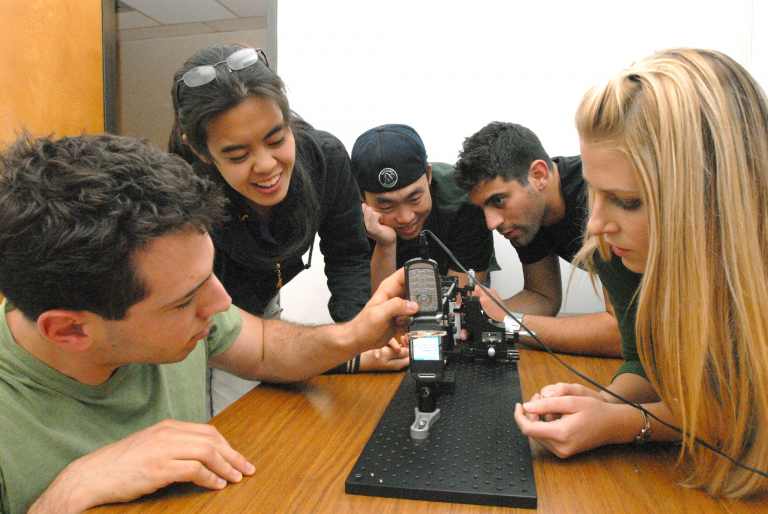 [Editor’s note: Solving Problems that Matter’s editor Khanjan Mehta has made the book available as a free download (pdf).
[Editor’s note: Solving Problems that Matter’s editor Khanjan Mehta has made the book available as a free download (pdf).
The fields of product design and technology for global development can feel like walled castles to job seekers on the outside. The best advice has often been a combination of, “Well, it’s hard,” and “Try making your own job.”
But now there’s a better response. Without skirting the truth that the road is hard, a new book provides a map to job seekers: Solving the Problems that Matter (and Getting Paid for It): STEM Careers in Social Innovation and Global Sustainable Development, edited by Khanjan Mehta.
Mehta, who is a contributing editor at E4C and Director of the Humanitarian Engineering and Social Entrepreneurship (HESE) Program at Pennsylvania State University, has collected 54 expert briefs and 100 profiles of innovators in this field that should be the new standard for career advice and the starting point for scientists and engineers seeking work in global development.
The title, and much of what comes after it in the book itself, reflect Mehta’s own relentless pursuit of meaning and work that makes an honest, measurable impact. We asked Mehta about the collection to draw a picture of what readers can expect.
This book should be the new standard for career advice and the starting point for scientists and engineers seeking work in global development.
E4C: You mention in the preface that the impetus for this book was the question that students had about what’s next after graduation. Has this book given you an answer?
KM: Yes. I have much better answers to questions like, “How will graduate school help me get into international NGOs and foundations?” I can now point out how some pathways don’t need grad school (or even undergrad education), while for others, you need a PhD and even post-docs to get a start.
Another question the book helps answer is about the Peace Corps: “I want to have an impact. Should I apply?” And my answer now is, No. The Peace Corps is about finding yourself and personal development much more so than impact. It can get you started though!
The best way to help people is not necessarily the most direct one. You can help more people by influencing systems!
E4C: What were some of the commonly repeated refrains among the 54 essays that you included in the book?
KM: Some common observations are:
- Do: Network. Most people talked about getting access to internships, jobs, new opportunities because of their networks. This book itself came about by leveraging an extended network. So show up… and build your network!
- Don’t: Don’t do things that you think will help people or yourself just because that is the only thing you can do. Think, analyze, triangulate. Several people talked about doing internship after internship, fellowship after fellowship thinking they are getting relevant experience. They were not building on skills and so the new experience was marginally helpful and in some cases, hurt them.
- The best way to help people is not necessarily the most direct one. You can help more people by influencing systems!
E4C: You’ve made a career in humanitarian technology and entrepreneurship . Was there anything that you yourself learned from the essays and interviews in your book?
KM: It confirmed that at some point, everyone is venturing into the unknown and you should not be afraid to make things up! Everything not made by nature was made by humans at some point.
Spend time networking and helping others. When you help others, you will get 10 percent of it back. Don’t calculate… just help others and keep churning away.
Also, spend time networking and helping others. When you help others, you will get 10 percent of it back. Don’t calculate… just help others and keep churning away.
I learned the importance of finding alignment between your personal / professional goals and the goals of other organizations and donors.
And just believe in yourself. People do things and donors fund projects for a number of reasons – good and bad; fair and unfair. That’s the world— suck it up. Nothing succeeds like success and if you can build enterprises that solve problems and are economically sustainable, it’s all good.
Solving Problems that Matter (and Getting Paid for It) is sold at Amazon and it’s free for Kindle Unlimited subscribers.

